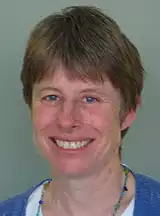March 2016 Spotlight: Cathy Manduca
The March 2016 GER Spotlight is Dr. Cathy Manduca, Director of the Science Education Resource Center at Carleton College. She describes her career trajectory as a geoscience education researcher, shares insights about the value of collaborating across disciplinary boundaries to gain new lenses onto teaching and learning research, and highlights the changing landscape of the process of geoscience education research in the current environment.
My research focuses on the intersection of faculty learning and student learning. I first became involved in geoscience education research when I wanted to understand how well the Keck Geology Consortium program was working. I was in charge of both managing the program and obtaining new funding, so I wanted to know what kind of experience students and faculty were having, how they benefited from the program and how they were different as a result of their participation. I started out by talking to people and using exit surveys. Not far down the road I went to a multi-day evaluation school and obtained a certificate. Not much by way of training, but enough to give me confidence to apply what I knew about studying rocks to studying people. So my biggest advice to early career geoscience education researchers is to think critically and carefully, but not to be hesitant as you creatively attack the problems that interest you.
Beginning in 2002, I had the opportunity to work with professional evaluators to understand the impact of the On the Cutting Edge professional development program. This was a much more extensive education in evaluation than I had obtained earlier. Logic models, evaluation design, formative and summative all became part of my vocabulary, while I added new expertise in survey design and quantitative data analysis to my toolkit. Many of the conversations about methods currently underway in the geoscience education community have long history in the evaluation community.
More recently, I have had the opportunity to collaborate closely with cognitive psychologists, anthropologists, education researchers and others who bring very different disciplinary approaches and standards of proof to understanding learning. The questions you pose and the way that you pose them are the foundation of your work. Without important questions, the best research methods will not yield transformational results (except by accident and you still have to be looking at an interesting place). Different disciplines ask really different questions. They also go about answering them in different ways and find different types of answers more or less compelling. Since my goal is improvement in teaching and learning, coming to understand the diversity of ways that compelling arguments can be made from different kinds of data has been revolutionary, and appreciating the skill associated with making the answers compelling to different types of audiences very important.
From my point of view, one of the most exciting things in geoscience education research today is the community scale work to synthesize results and to identify research agendas that are tied to the needs and interests of geoscience educators of all types. These activities help our community identify really important questions and increase the odds that the research will be valuable, valued and used. When I think back to the original "Bringing Research on Learning to the Geosciences" report, one of the primary challenges we faced was disseminating what was known to faculty who had no idea the research existed. Today, we have opportunities like the Earth Educators' Rendezvous that integrate learning about teaching from practitioners and researchers with designing the next round of research questions. This moves far beyond dissemination, defining a new kind of fast cycle interaction between education and education research. It should be a very productive strategy for supporting improvement—and I'm sure its impacts will be well understood by the geoscience education research community.
Recent Publication of Interest:
Condon W., Iverson E.R., Manduca, C.A., Rutz, C. and Willet, G., (2016) Faculty Development and Student Learning: Assessing the Connections, Indiana University Press, Bloomington, IN, 156 p.


![[reuse info]](/images/information_16.png)